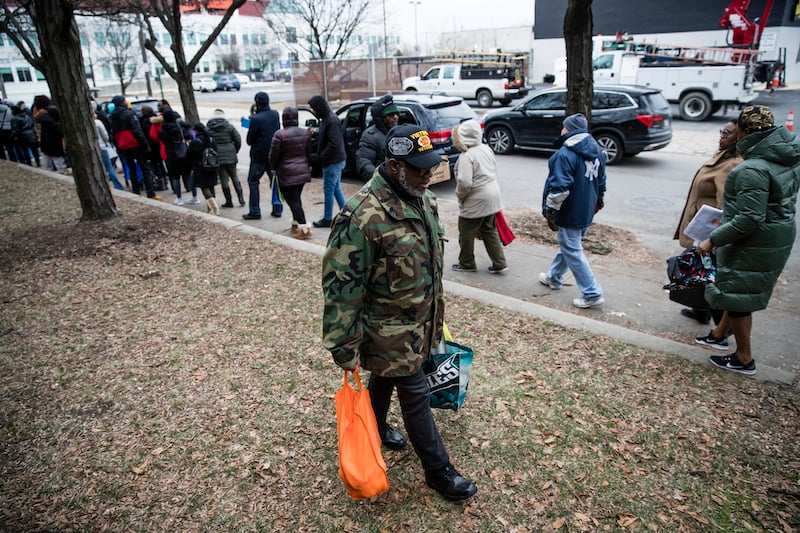MANHATTAN (CN) – With one week to go before funding for the nation's court system dries up, a federal judge said it was disgraceful that the Department of Justice attorney appearing before him Wednesday was working without pay.
“It is an embarrassment,” U.S. District Judge Paul Crotty said during a hearing in his Manhattan courtroom.
“It is an embarrassment, a national embarrassment,” the Justice Department’s civil attorney Robert Underhill agreed.
The courtroom exchange occurred as the U.S. judiciary itself prepares to run out of funds. Even before the judiciary’s tap runs dry, on day 33 of the shutdown federal investigations have been hobbled, and roughly 420,000 people have been made to work without pay.
Federal courts across the country have remained open, but for how much longer remains uncertain as a separate funding reserve for the U.S. judiciary is set to lapse next Thursday.
“We’re going to have to find vendors who are going to let us drag out the bill until there are appropriations,” Edward Friedland, the district executive for the Southern District of New York, said in an interview, raising questions about the ability to pay for heating, ventilation and air conditioning into March.

While the nation’s 94 district courts and 13 courts of appeal will remain open for now under the Antideficiency Act, each will have to determine separately, come Feb. 1, how long they can keep utilities paid and buildings maintained.
Criminal cases will receive priority to comport with the Sixth Amendment right to a speedy trial, but jurors may see delays in getting their $50 statutorily required daily payments, increasing the risk of no-shows.
Friedland said that more than 700 court personnel will join the ranks of those working without paychecks, including court interpreters and administrative staff responsible for docketing cases.
Sizing up their mortgages and car loans, “people are worried about how they’re going to make their next payment,” Friedland said.
“Morale is a big problem when staff is not being paid,” Friedland added.
Since the shutdown began on Dec. 22, all nonessential federal agencies – a category that includes prosecutors at U.S. Attorney’s Offices, FBI staffers and U.S. marshals, have gone unpaid.
“If the courts are open, we’re going to protect the court,” Drew Wade, a spokesman for the Marshals Service, said in a phone interview.
On Tuesday, the FBI Agents Association issued bracing warnings about how the shutdown has weakened national security, stifled criminal investigations and made life harder for their rank-and-file.
“We are honored to serve and protect the public,” the union wrote in a 72-page report. “However, the ongoing government shutdown undermines the ability to perform these duties and fund necessary operations and investigations.”
Quoting agents from across the country, the report details how the shutdown has affected probes of gangs, terrorism, securities fraud, sex trafficking and crimes against children.
“The shutdown has prohibited me from conducting any travel to conduct interviews necessary for an active case that is in immediate need of such interviews,” one Manhattan-based FBI agent said, as quoted by the union.
Another FBI employee working in the Northeast region reported that the nation’s cybersecurity defenses feel pain of the shutdown along with his family.
“The federal government shutdown means I continue to work every day to protect America, while investigations are delayed, and my family goes without pay,” that staffer said.
With the bureau reportedly setting up a food bank for its workers, the union spoke of one agent from the Western Region whose wife has been suffering with terminal cancer for more than a decade.
“To have my family placed in a financial situation we are currently facing due to partisan politics is disgusting to me as a government employee and a citizen,” the agent said.







